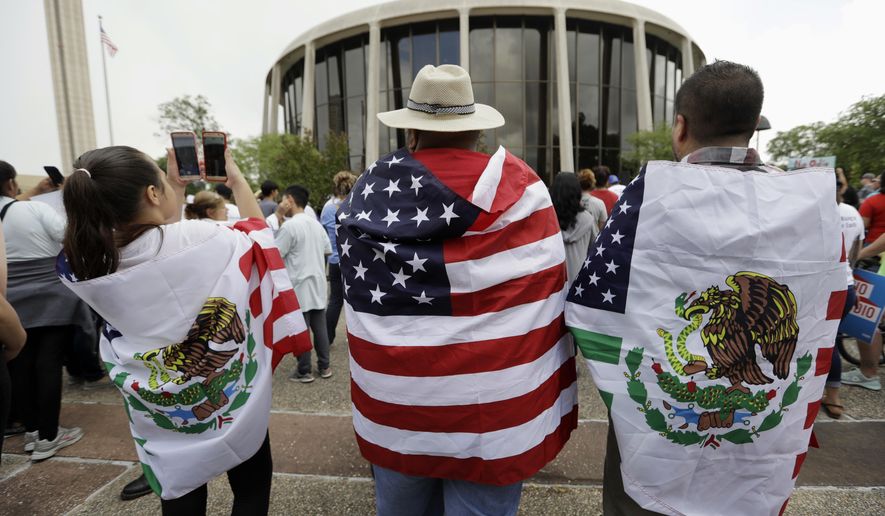AUSTIN, Texas (AP) - Texas for now can require law enforcement to honor federal immigration requests to detain people in local jails for possible deportation under a new “sanctuary cities” law supported by the Trump administration, a federal appeals court ruled on Monday.
The decision prompted one notable critic of the immigration crackdown, Travis County Sheriff Sally Hernandez, to announce that her Austin jails would now honor all detainers from U.S. Immigrations and Customs Enforcement. The elected Democrat had become a polarizing figure after announcing on the day of President Donald Trump’s inauguration that the county’s jails would no longer comply with all such requests.
But the unanimous ruling of a three-judge panel in New Orleans wasn’t seen as so clear-cut by others. Some lawyers said they believed the decision did not demand total compliance with federal agents, while other local officials struggled to interpret the ramifications.
Republican Texas Attorney General Ken Paxton hailed it as a clear victory allowing the state to “enforce the core” of the law known at Senate Bill 4.
The 5th U.S. Circuit Court of Appeals ruling negates some of U.S. District Judge Orlando Garcia’s Aug. 31 halt to much of the law one day before it was to go into effect. The decision lets Texas enforce the detainer provision, pending fuller oral arguments in November.
“We are pleased today’s 5th Circuit ruling will allow Texas to strengthen public safety by implementing the key components of Senate Bill 4,” Paxton said in a statement.
Major cities such as Houston, Dallas and Austin had sued the state, saying the measure was unconstitutional and warning that it would have a chilling effect in immigrant communities.
Nina Perales, an attorney for the Mexican American Defense and Legal Education Fund who is also representing the cities of San Antonio and El Paso, said the ruling appeared to leave wiggle room for interpretation.
“I don’t read this decision as making all detainers mandatory,” she said.
Hernandez said her policies had been updated to comply with the latest ruling and that she looked forward to “further clarification” from the courts. Her spokeswoman, Kristen Dark, said the changes mean that Travis County jails will now honor all detainer requests.
Jose Garza, an attorney for the Mexican American Legislative Caucus, acknowledged that the state now potentially had room to pursue penalties against chiefs or sheriffs who don’t comply.
The Republican push to pass the law roiled the Texas Legislature throughout the spring. One GOP legislator notified federal immigration agents about protesters who held signs saying they were illegal, and told a Democratic colleague who pushed him during an argument, that he would shoot in self-defense.
U.S. Attorney General Jeff Sessions has praised the Texas law and the Department of Justice filed arguments in support of it, as did several attorneys general from other states.
The law’s opponents argue it violates the Fourth Amendment by requiring police to detain people suspected of illegal immigration without probable cause. They also say it illegally puts local police in the federal role of immigration enforcement officers, and is unconstitutionally vague as to exactly when a local law enforcement officer would be in violation of the law.
Supporters of the state law say immigration officials have already determined probable cause when they seek to have local officials detain someone. They also argue that federal and local officials have a long history of cooperation on immigration matters and that the law is clear in its prohibition against local policies restricting immigration enforcement.
___
This story has been updated to correct that Jose Garza is an attorney for the Mexican American Legislative Caucus, not the Mexican American Legal Defense and Education Fund.
___
Associated Press Writer Kevin McGill in New Orleans contributed to this report.
___
Follow Paul J. Weber on Twitter: www.twitter.com/pauljweber




Please read our comment policy before commenting.